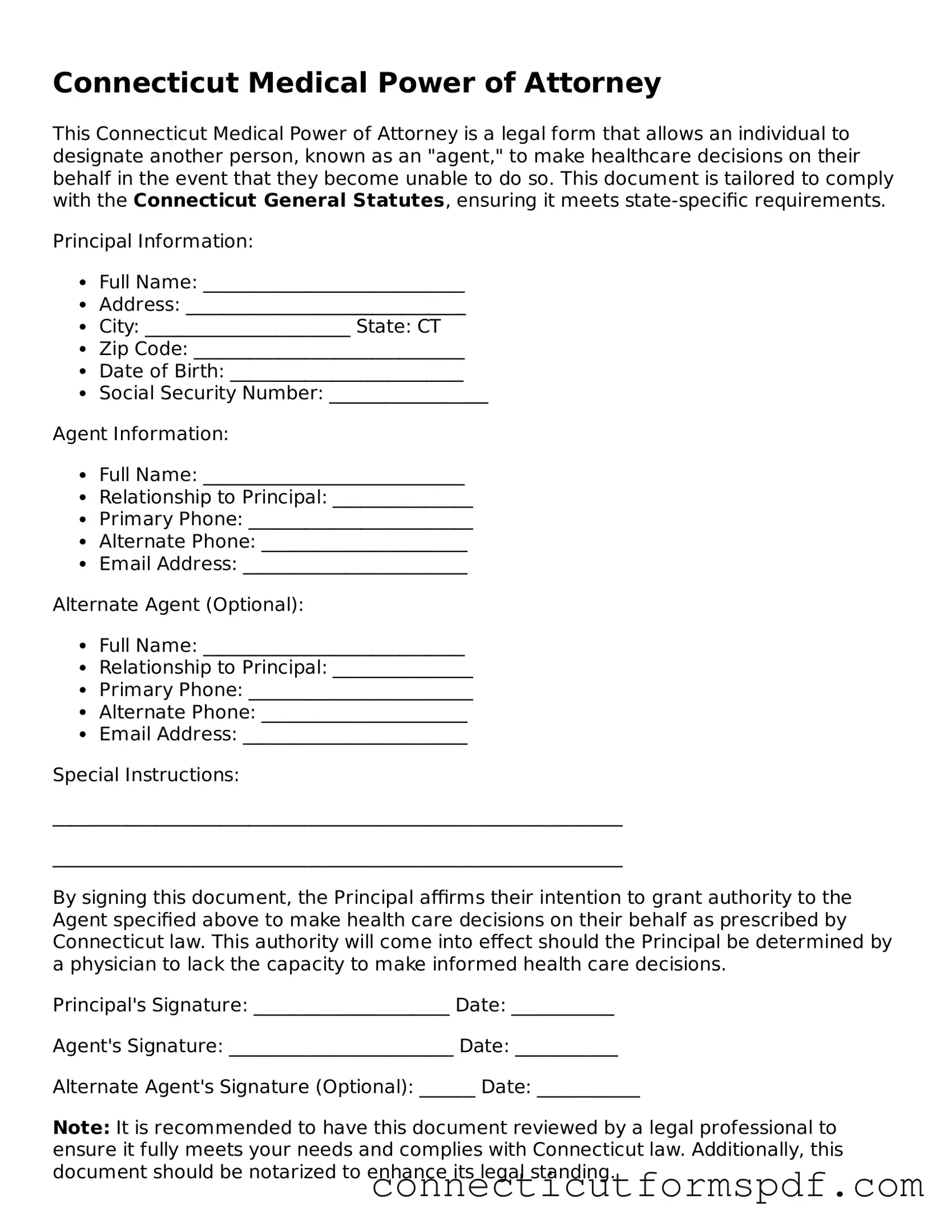Connecticut Medical Power of Attorney
This Connecticut Medical Power of Attorney is a legal form that allows an individual to designate another person, known as an "agent," to make healthcare decisions on their behalf in the event that they become unable to do so. This document is tailored to comply with the Connecticut General Statutes, ensuring it meets state-specific requirements.
Principal Information:
- Full Name: ____________________________
- Address: ______________________________
- City: ______________________ State: CT
- Zip Code: _____________________________
- Date of Birth: _________________________
- Social Security Number: _________________
Agent Information:
- Full Name: ____________________________
- Relationship to Principal: _______________
- Primary Phone: ________________________
- Alternate Phone: ______________________
- Email Address: ________________________
Alternate Agent (Optional):
- Full Name: ____________________________
- Relationship to Principal: _______________
- Primary Phone: ________________________
- Alternate Phone: ______________________
- Email Address: ________________________
Special Instructions:
_____________________________________________________________
_____________________________________________________________
By signing this document, the Principal affirms their intention to grant authority to the Agent specified above to make health care decisions on their behalf as prescribed by Connecticut law. This authority will come into effect should the Principal be determined by a physician to lack the capacity to make informed health care decisions.
Principal's Signature: _____________________ Date: ___________
Agent's Signature: ________________________ Date: ___________
Alternate Agent's Signature (Optional): ______ Date: ___________
Note: It is recommended to have this document reviewed by a legal professional to ensure it fully meets your needs and complies with Connecticut law. Additionally, this document should be notarized to enhance its legal standing.
Affirmation by Notary Public
State of Connecticut
County of ________________
On this, the ___ day of __________, 20__, before me, the undersigned notary public, personally appeared [Name of Principal], known to me (or satisfactorily proven) to be the person whose name is subscribed to the within instrument, and acknowledged that they executed the same for the purposes therein contained.
In witness whereof, I hereunto set my hand and official seal.
Notary Public Signature: ____________________
Printed Name: _____________________________
My Commission Expires: ___________________

